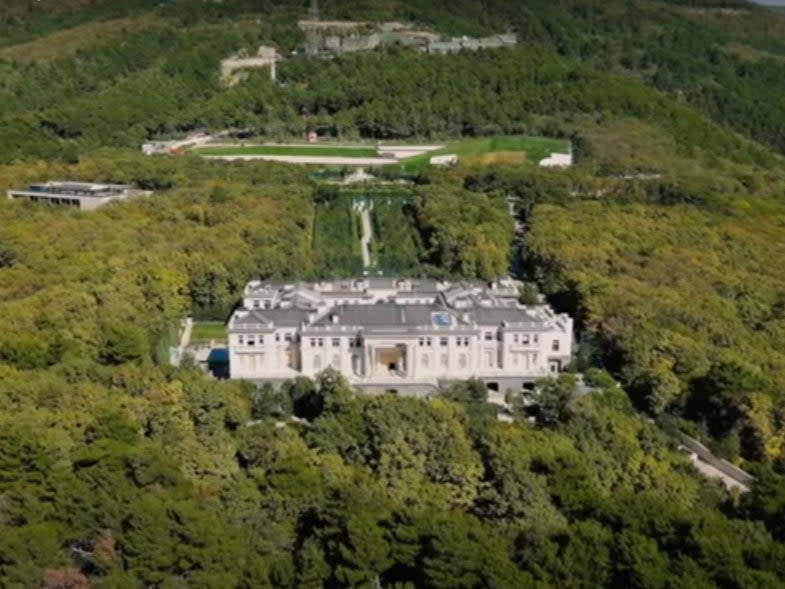Putin denies owning £1bn Black Sea palace after Navalny exposé

Vladimir Putin has denied he owns a palace, in his first comments since nemesis Alexei Navalny linked him to an opulent £1bn development on the Black Sea coast.
Mr Putin said he had “not had the time” to view the much-discussed investigation, released on 19 January shortly after the Putin critic was jailed. Nonetheless, the president asserted extracts he had seen represented an “attempt to brainwash” Russians using “10-year-old rumours”.
“They decided it was a good time to put things together and brainwash our citizens,” he said. “This is just a compilation, a cut and paste job.”
In an altogether complicated repudiation, Mr Putin said neither he nor close relatives had “ever” owned the property.
That precise formula appeared to sidestep the main claim made by Mr Navalny’s team that oligarchs gifted the palace as way of a bribe, and that state-owned companies financed the construction.
The opposition leader’s two-hour-long video exposé has already been watched over 85 million times.
The report’s main claim – a palace built for the president – is not entirely new. But the more lurid details are. They include inventories of hockey palaces, cinemas, swimming pools, saunas, music rooms, casinos, hookah rooms, and wildly expensive toilet brushes.
The embarrassing revelations appear to have helped boost turnout at pro-Navalny rallies on Saturday.
Despite warnings of a violent crackdown, between 100,000-300,000 took to the streets calling for Mr Navalny’s release, making the protest the most serious challenge to Mr Putin’s rule for a decade.
Speaking on Monday, Mr Putin said he respected the rights of people to “express their point of view”. But he said doing so “outside legal frameworks” risked a return to revolution.
“The people who rocked the Russian empire may also have been guided by good intentions, but what good did that bring,” he said.
Russian authorities have made it clear they do not intend to create any legal framework for pro-Navalny rallies.
Watch: WH calls on Russia to release Alexei Navalny
Read More
First Lady: Russia warms to the woman who ‘saved’ Alexei Navalny
Why Navalny protests across Russia will have rattled the Kremlin

 Yahoo Movies
Yahoo Movies 
